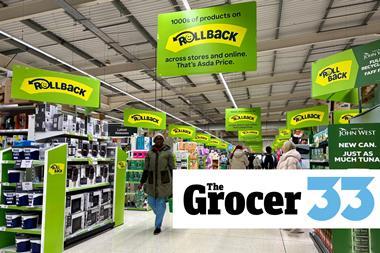It’s no great surprise that 15% of the 6,221 consumers interviewed by Kantar in the wake of ‘Horsegate’ said they would think twice about buying value ranges and might no longer buy them.
Cost has gradually been cut out of branded and own-label ranges to meet the needs and expectations of value-seeking shoppers.
Why? Shoppers have been looking to manage the rocketing cost of living and keep more pennies in their pockets, while retailers have been fighting for the title of cheapest retailer - no matter what it takes. These primary drivers couldn’t ever be conducive to positive long-term outcomes, could they?
There has also been a contrasting shift among more affluent shoppers, newcomers to value brands who have been confidently buying value ranges because they believed many of the products were the same as the branded alternatives. Their confidence and trust must surely now be scarred or in question?
“After horsegate we may start to see value seekers seeking quality”
So what will happen now? Some shoppers will always keep on buying value no matter what because they simply have no choice. But as a result of ‘Horsegate’, we may start to see a new wave of value seekers who put quality higher up on their priority list - which is exactly what the industry and consumers need.
Taking a glass half full view, I’d like to think the scandal could have a positive outcome, spurring the creation of more ‘value with better values’ brands.
It may encourage more foodie types, who confidently turned to cheaper brands because they felt they could trust them, to look out for brands and businesses with values, not just a low price.
Some shoppers may even start to take a more altruistic view and question what they are putting into their own and their families’ bodies. If those with families took a step back and thought about the duty of care they have to their children and what they could do to set them up for a long and healthy life, it would change or at least challenge the key purchase drivers. It would make quality, not just price, a greater priority on the shopping list?
It sounds mad in such a tough economic climate to ask people to pay more for better quality. But thinking longer term, with the healthcare system not able to cope with the increasing demands of an obese and , paradoxically, malnourished population, better quality foods and brands with better values could play an increasingly powerful role in the achievement of long-term good health among all social groups.
I am convinced that there will be big rewards for whoever champions this thinking first, with a determination for good value yet quality choices.
Claire Nuttall is founding partner of Thrive



















No comments yet